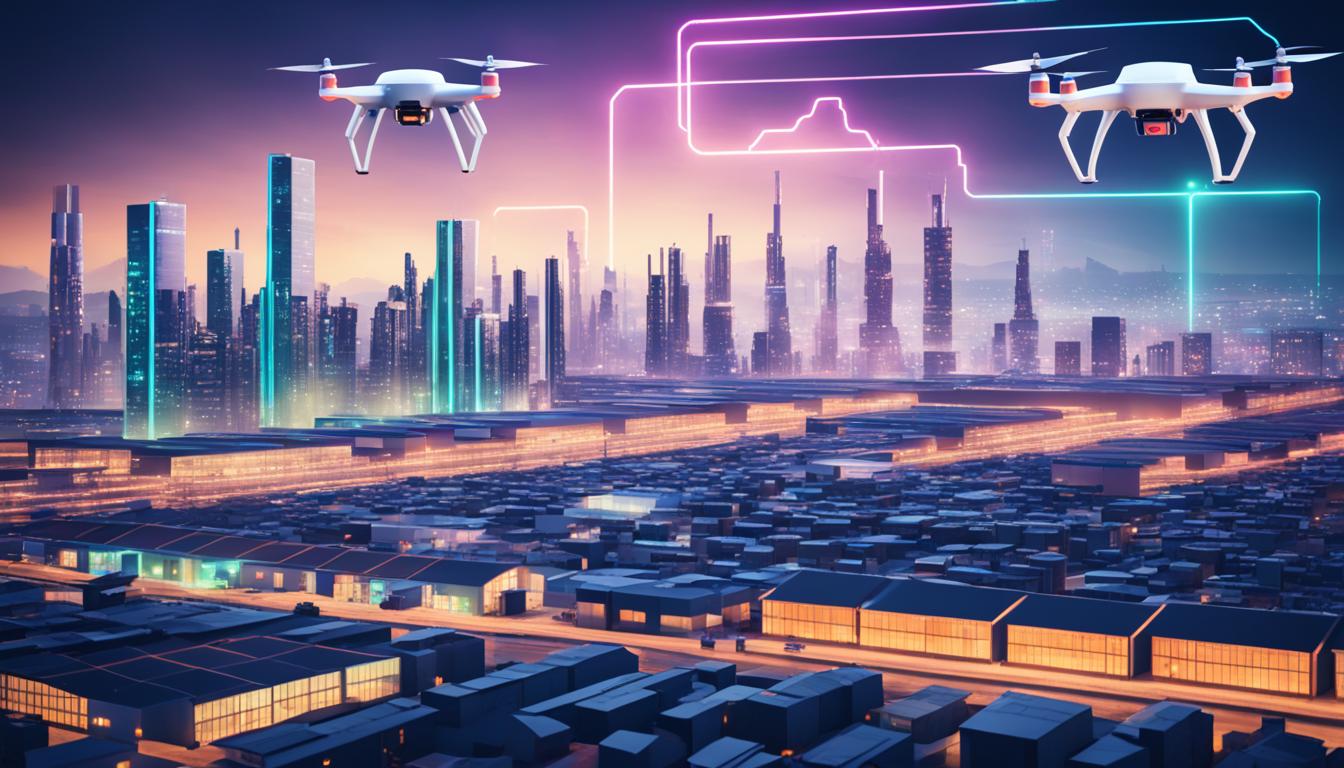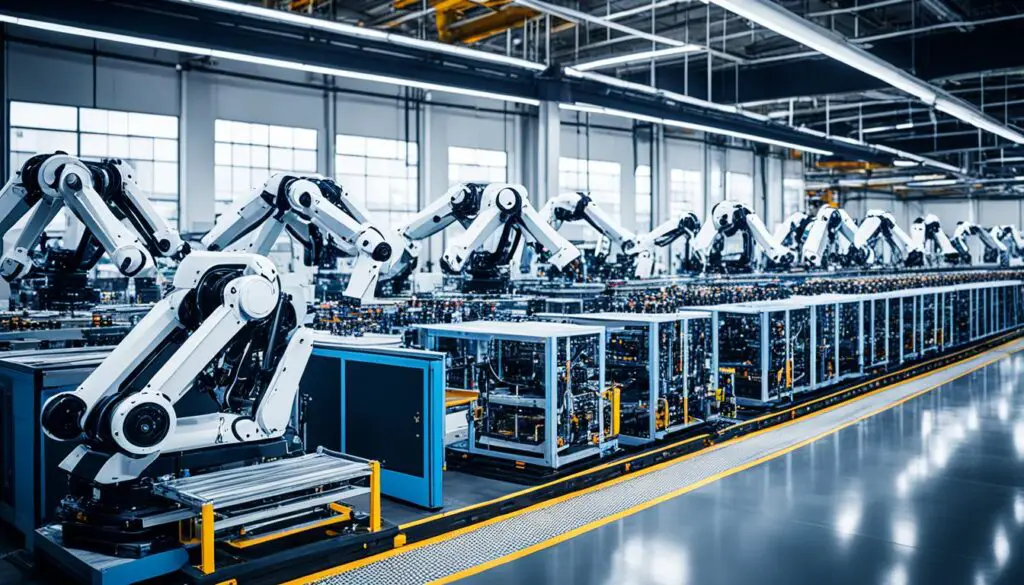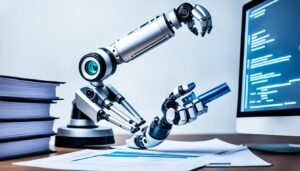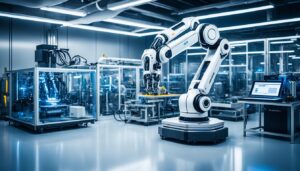
Generative artificial intelligence (AI) is changing the economy worldwide. It’s reshaping industries and changing our work ways. The use of AI tools, with natural language skills, is expected to greatly boost the AI economy. Goldman Sachs Research suggests this could increase global GDP by 7%, or nearly $7 trillion. This growth could boost productivity by 1.5% over ten years, changing our economy significantly.
The rise of AI brings worries about jobs and automation. About 300 million jobs could be automated, affecting two-thirds of US roles. Yet, not all automation means job loss. Many roles and sectors will only be partially automated. This means AI will likely add to human work instead of replacing it.
History shows us that AI and automation create new jobs. While some jobs may go, new ones appear in novel areas. This has long meant more jobs over time. Moreover, AI is changing areas like software, healthcare, and finance. It’s impact is growing far beyond the job market.
The power of AI to change the economy is huge. It’s vital that businesses and policymakers use this power. They must aim for growth and prosperity.
Key Takeaways:
- Breakthroughs in generative AI have the potential to drive a 7% increase in global GDP.
- Automation could lead to job displacement, but historical data shows that new jobs are created in emerging fields.
- Generative AI tools are transforming industries beyond job markets, including enterprise software, healthcare, and financial services.
- Policymakers and businesses must navigate the challenges and opportunities that AI presents for the economy.
- Harnessing the power of AI can lead to sustainable growth and economic prosperity.
The Evolving Dynamics of Scale in the AI Era
The rise of AI is shifting how we see economies of scale. Before, businesses relied on mass production to cut costs per unit. Now, AI is changing this approach. It promises great efficiency and the chance to tailor products for each customer. This is shaking up old business models.
In today’s world, driven by data, we wonder if old economies of scale still work. With AI leading the way, we’re asking if old and new can work together. This section looks into how scale is changing because of AI.
Challenges
- Economies of scale: The old way of big production runs may struggle, as AI makes it easy to make things just for you. Companies must rethink how they grow with AI’s help.
- Growth paradigms: AI is making us question how companies grow. The old ways of fixed costs and more products might not fit with AI’s dynamic benefits.
- Efficiencies: AI brings new ways to save money. It lets companies do more with less, cut waste, and be more cost-effective.
Opportunities
- AI disruption: AI shakes things up, but that’s a chance for companies to stand out. By using AI, they can transform and get ahead.
- Efficient resource allocation: AI helps companies use resources better, thanks to data. This means making things more efficiently, saving money, and boosting productivity.
- Personalization at scale: AI lets companies make products just for you, but on a big scale. This brings new ways to connect with customers and grow.
To use AI’s benefits fully, organizations need to adapt. They must be open to change. By facing challenges and grabbing opportunities, companies can innovate. This leads to being competitive and growing in a world driven by AI.

The Geopolitical Implications of AI and Economic Inequality
AI is changing the world’s economy in big ways. Machine learning, a part of AI, can add a lot of value and help economies grow. The way we handle data, from collecting to developing algorithms, is crucial for making the most out of AI. It’s important for leaders to focus on the best parts of this process for their countries.
As AI grows, it will change how countries and companies do economically. Some will move forward fast, while others might fall behind. Leaders need to tackle the issue of economic inequality this growth brings. They must strive for fair growth for everyone. AI’s impact is different from globalization, especially in terms of national security and tech secrets.
Leaders must act quickly to handle AI’s challenges. They have to balance the risks and rewards to avoid making economic inequality worse. By understanding AI, economic growth, and globalization, they can work towards an equal future. It’s all about making sure AI benefits everyone fairly.
FAQ
What is the potential impact of AI on the global economy?
How many jobs could be exposed to automation due to AI?
Has job displacement by automation led to employment growth in the past?
How does AI disrupt the traditional concept of economies of scale?
What are the challenges and opportunities presented by the changing dynamics of scale in the AI era?
How does AI and economic inequality intersect?
Source Links
- https://www.goldmansachs.com/intelligence/pages/generative-ai-could-raise-global-gdp-by-7-percent.html
- https://www.linkedin.com/pulse/economies-scale-reimagined-from-mass-production-machine-stanton
- https://carnegieendowment.org/2019/10/02/world-isn-t-ready-for-ai-to-upend-global-economy-pub-79961






